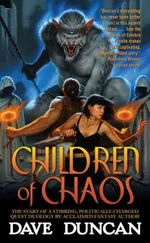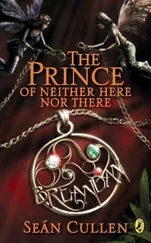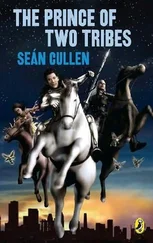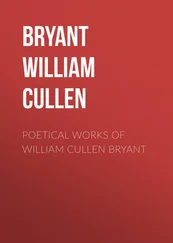Eric continued to dream. Major Harris inspired military fantasies, but Eric usually saw himself as a Marine. “Guns! Boy, I loved playing guns,” he wrote later. The rustic towns he grew up in provided fields and forests and streams where he could play soldier. When Eric was eight, the family moved to Oscoda, Michigan, where the scenic Au Sable River meets Lake Huron in the rugged northern region of the state. Wayne and Kathy bought a house in town so the boys could grow up with civilians. Oscoda was dominated by the air force base; population 1,061 and dropping. Work for adults was sparse, but it offered a world of adventure for little boys.
The Harris house sat near the edge of Huron National Forest. It seemed vast, empty, and ancient to Eric’s young eyes. The air was thick with the scent of musty white pines. This was early lumberjack territory. The state proclaimed it Paul Bunyan’s home, and the Lumberman’s Monument had been erected in bronze nearby. Eric, Kevin, and their friend Sonia would spend afternoons hunting down enemy troops and withstanding alien invasions. They built a little tree fort out of sticks and branches to use for a base camp.
“Fire!” Eric screamed in one of their enactments. The three young heroes rattled off machine-gun fire with their toy guns. Sonia was always fearless—she would charge straight into the imaginary rifle fire. Kevin yelled for air support; Eric tossed a stick grenade into the trees. The three defenders took cover and felt the earth shudder from the convulsion. Eric hurled another grenade, and another and another, taking wave after wave of enemy troops down. Eric was always the protagonist when he reminisced about those days in high school. Always the good guy, too.
When he was eleven, id Software released the video game Doom, and Eric found the perfect virtual playground to explore his fantasies. His adversaries had faces, bodies, and identities now. They made sounds and fought back. Eric could measure his skills and keep score. He could beat nearly everyone he knew. On the Internet, he could triumph over thousands of strangers he had never met. He almost always won, until later, when he met Dylan. They were an even match.
In 1993, Wayne retired. The family moved again, this time to Colorado, and settled down for good in Jeffco. Eric entered seventh grade, and Kevin started at Columbine. Wayne eventually took a job with a defense contractor that created electronic flight simulators. Kathy began part-time work at a catering company.
Three years later the Harrises upgraded to a $180,000 home in a nicer neighborhood just north of the beautiful Chatfield Reservoir and two miles south of Columbine High School. Kevin played tight end and was the kicker for the Rebels before heading off to the University of Colorado. The color gradually drained out of Major Harris’s thinning hair. He grew a thick white mustache, put on a few pounds, but maintained his military bearing.
____
Eric loved a good explosion, but treasured his own tranquillity. Fishing trips with his dad were the best. He captured the serenity in a vivid essay called “Just a Day.” The night before, he had to go to bed early, which would normally provoke “a barrage of arguments and pouting,” but on these occasions he didn’t mind. He’d wake up to black skies and rich ground coffee vapors wafting up to his room. Eric didn’t like to drink the stuff, but he couldn’t get enough of the smell. “My brother would already be up,” he continued, “trying to impress our father by forcing down the coffee he hadn’t grown to like yet. I always remember my brother trying to impress everyone, and myself thinking what a waste of time that would be.”
Eric would scamper out to the garage to get his tackle together and help load the cooler into the back of their’73 Ram pickup. Then they headed into the hills. “The mountains were always peaceful, a certain halcyon hibernating within the tall peaks & the armies of pine trees. It seemed back then that when the world changed, these mountains would never move,” he wrote. They would drive out to a mountain lake in the wilderness, almost deserted, except for “a few repulsive suburbanite a$$holes. They always seemed to ruin the serenity of the lake.”
Eric loved the water. Just standing back on the bank and gazing at it: the waves dancing around the surface in peculiar patterns, getting caught suddenly by a burst of current, forming unexpected shapes and vanishing again—what a glorious escape. When his eye caught something interesting, Eric would cast into it, presuming the fish might have been attracted to it, too.
Then it was over. Back to shithead society, populated by automatons too dense to comprehend what was out there. “No regrets, though,” he concluded. “Nature shared the secret serenity with someone who was actually observant enough to notice. Sucks for everyone else.”
22. Rush to Closure

Healing begins, the Denver Post announced Thursday morning. The headline spanned the full width of page 1 thirty-six hours after the attack. Ministers, psychiatrists, and grief counselors cringed. It was an insanely premature assessment The paper was trying to be helpful, but its rush to closure did not go over well in Jeffco. With every passing week, more of the community would grumble that it was time to move on. The survivors had other ideas.
The bodies were finally returned to the victims’ families on Thursday. Most of the parents were desperate to learn how their child had died. There were plenty of witnesses, but a few were tempted to inflate their accounts, and the more dramatic versions of their stories tended to travel.
A heroic version of Danny Rohrbough’s death quickly gained currency and was widely reported in the media. “[He] held the school door open to let others escape and laid down his life for his friends,” the Rocky Mountain News reported.
“You know, he might have lived,” the Rohrboughs’ pastor would tell fifteen hundred mourners at Danny’s funeral. “He chose to stay there and hold the door for others so that they might go out before him and make their way to safety. They made it and Danny didn’t.”
The story was later disproved. Danny’s father, Brian, said he never believed it. “I know that Dan and his friends wouldn’t have been standing there if they had thought they were in danger,” he said. Brian was irritated by the urge to juice the story to make Danny’s death more tragic or meaningful. It was tragic enough, he said.
____
A hundred students in Clement Park crushed together in a throbbing teen prayer mosh. They stood on their toes, reached toward the heavens, and pressed their arms together in a mass human steeple. The mood was rapturous, the faces serene. They sang sweet hymns, swayed as one body, and cried out to Jesus to pull them through. They named The Enemy. “We feel the presence of Satan operating in our midst!” a young girl declared.
The school set up a second official gathering for students on Thursday afternoon. The megachurches were among the only structures in the area big enough to accommodate a crowd that large, so the gathering was held at West Bowles Community Church. This session was to be informal, just a designated place for students who wanted to find each other in one place. Mr. D wasn’t planning to speak, until a counselor interrupted his meeting with faculty down the hall. “Frank, they need you,” he said. “You need to go out there.”
Frank walked the hallway to the nave of the church, contemplating what to say. And again he faced the dilemma of how to act at the microphone. Several of his friends, and staff, too, had warned him not to cry again. “God, you’re going to be in the national media,” they said. “You can’t show that, it’s a sign of weakness.” He had gotten away with it once, but the media would crucify him if they discovered he was buckling.
Читать дальше








